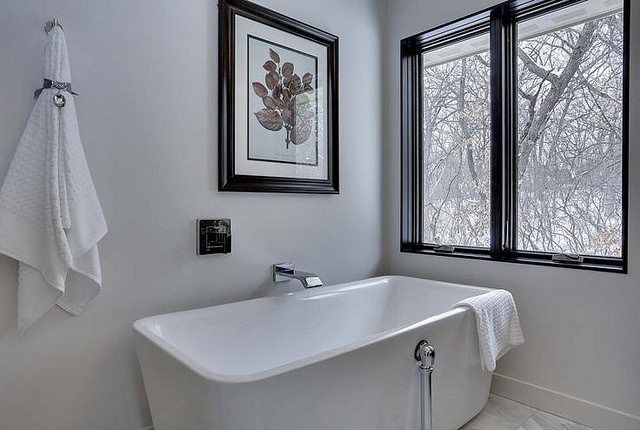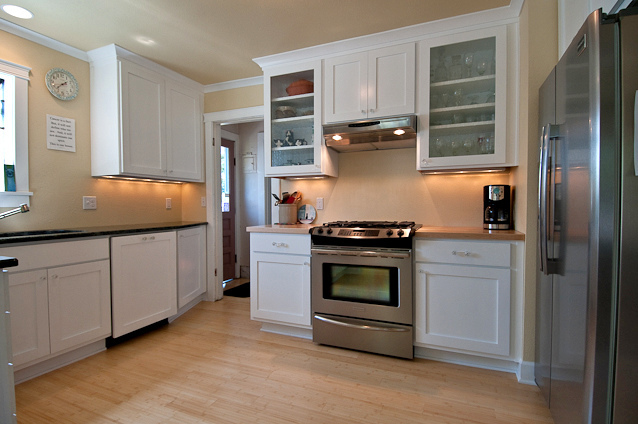Maximizing Rental Returns with Property Remodeling
 Being a landlord doesn’t mean you can just sit back, relax and collect your tenant’s money on a monthly basis. The business of renting residential units is pretty much the same as any other, meaning you need to invest, develop, monitor and maintain your assets. Although you can’t expect to be making a significantly greater profit by merely changing a thing or two about your property, rest assured that some remodeling works can bring about an increase in your income which would definitely pay off. Plus, you’ll increase the property value in case you decide to sell it. Let’s have a look at some points to consider, shall we?
Being a landlord doesn’t mean you can just sit back, relax and collect your tenant’s money on a monthly basis. The business of renting residential units is pretty much the same as any other, meaning you need to invest, develop, monitor and maintain your assets. Although you can’t expect to be making a significantly greater profit by merely changing a thing or two about your property, rest assured that some remodeling works can bring about an increase in your income which would definitely pay off. Plus, you’ll increase the property value in case you decide to sell it. Let’s have a look at some points to consider, shall we?
Timing
Ideally, all renovation works should be done when the property is empty, i.e. before you accept new tenants. That would give you more flexibility and you wouldn’t need to worry about whether the works are affecting your tenant. If that’s not an option in your case, make sure you talk to the tenant, let them know exactly what your ideas are and give an estimate of the duration of works. Also, be respectful of the tenant’s daily routine and organize the works accordingly.
Repair or replace?
Before you start, you need to know what elements need to be replaced and which ones can be repaired or cleaned. Is it really necessary, say, to replace a carpet or would a professional cleaner be able to clean it well enough for just a fraction of the price of a new one? Not only would you save money, but time as well, which would mean you bring new tenants sooner. However, you need to be realistic about life-expectancy of some furnishings and appliances.

What to focus on?
It’s been widely accepted that kitchens and bathrooms are the two rooms in the house which provide the greatest “wow” factor and, in terms of finances, the greatest return on investment. “When you install new fixtures or tiling, for example, the place will instantly look better and become much more functional,” claim Sydney-based pros for bathroom renovations.
Apart from being able to charge a higher rent, you can also expect an 80% ROI if you’re thinking about selling the property in the next 10 years. No other remodeling work would provide such a rate. Finally, let’s not forget that everyone enjoys preparing meals in a nicely decorated and functional kitchen, while no-one likes taking a shower in a mold-infested bathroom.
Green is the color
Yes, you could paint your walls green, but there is another aspect of going green we think you need to focus on. Namely, if your appliances are efficient and Eco-friendly, they’ll last longer, consume less energy and save you the money.
If your toilet is low-flush and if your shower head is low-flow, you’ll save on water bills. Also, you might consider replacing a tub with a shower, since the former uses up to three times more water. Naturally, you’d need to analyze any prospective works from the point of view of investment. If, say, removing a tub would decrease the value of your property, it’s not a sound thing to do. For example, if you have just one bathroom, it might be wiser to leave the tub or have a shower/bath combination.
Investing in new appliances means you’re going for eco-friendlier appliances. They’ll save money and last longer, but also provide a much greater visual appeal. Plus, your tenants wouldn’t need to worry so much about whether the appliances would cause any damage to the property.
Have a plan
Make a plan about when you’re going to replace or remodel which element. Also, make sure you inspect the property, appliances and fixtures periodically and look for signs of malfunction. It is in the best interest of both you and your tenant to have a safe, energy-efficient residential unit. Plus, you need to look after your investment, don’t you?